A Missouri senator, impatient with slow progress by the Federal Aviation Administration, has taken it upon herself to address the use of electronic devices like Apple's iPad on airplanes, and she's putting together a bill that would allow passengers to use their devices from takeoff through to landing.
Politico reported on Thursday that Senator Claire McCaskill (D-MO) had expressed concern over FAA Administrator Michael Huerta's "lack of direct engagement" on the issue of electronics use during takeoff and landing. Currently, airline passengers are required to power down portable electronics devices from the closing of cabin doors until ten minutes after takeoff. Likewise, passengers must turn off their devices prior to the plane's landing and are not supposed to restart them until so advised by the flight crew.
In March of last year, the FAA announced that it would be taking a fresh look at the use of portable electronics on airplanes. The agency convened an Aviation Rulemaking Committee to address the issue, and that committee is expected to deliver its recommendations some time over the summer.
In a letter to Huerta, McCaskill expressed disappointment at the agency's pace in dealing with the matter.
"I am concerned," McCaskill wrote, "that relying on the ARC to drive change on this issue creates the potential for the process to drag on indefinitely. Many stakeholders have entrenched positions on this issue and have long resisted commonsense changes to the [portable electronic devices] rules... I was disappointed by the lack of commitment to the matter in your response.
Simply put, electronic devices that are currently allowed above 10,000 feet should be allowed for use during all phases of flight. It is preposterous to think that an e-reader in a passenger's hands during takeoff is anymore a threat to other passengers or crew members than a hardback book."
McCaskill's letter was in response to a previous reply from Huerta, dated February 12, 2013. In it, Huerta stated that the FAA was "still reviewing and evaluating the more detailed comments for the ARC," and asserted a six-month timeline before the ARC would present its recommendations to the FAA.
Speaking with Politico, McCaskill again expressed her disappointment with Huerta's response, saying that the next step for her would be "calling in the stakeholders ourselves and beginning to try to pull together the right legislation."
McCaskill says it's too early to tell what form any bill to address the impasse would take. The Missouri senator says she will continue to work with the FAA to resolve the impasse, but she reiterated that she wants more engagement from Huerta.
In 2011, the FAA authorized a number of commercial and charter airlines to replace 40-pound paper manuals with iPads. Late in 2012, American Airlines expanded its iPad Electronic Flight Bag program to allow 777 aircraft pilots to use the iPad during all phases of flight. The weight reduction enabled by switching to digital devices is estimated to have saved about $1.2 million per year on fuel costs.
 Kevin Bostic
Kevin Bostic







-m.jpg)





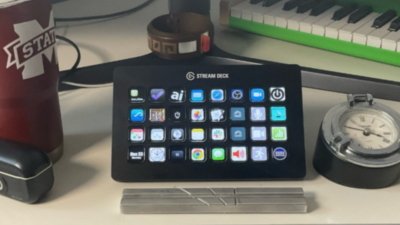
 William Gallagher
William Gallagher
 Amber Neely
Amber Neely
 Christine McKee
Christine McKee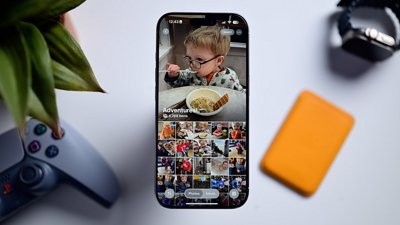
 Andrew O'Hara
Andrew O'Hara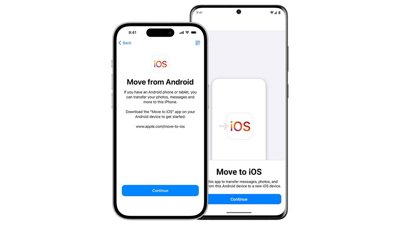

 Sponsored Content
Sponsored Content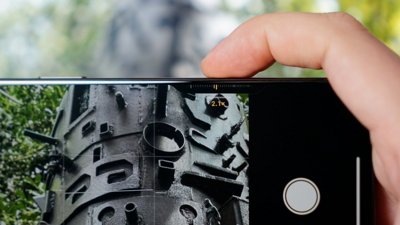
 Charles Martin
Charles Martin
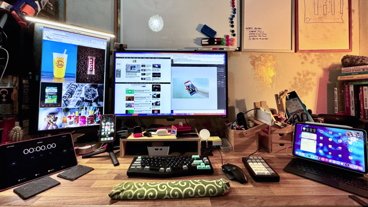







81 Comments
Didn't Mythbusters, you know, bust that whole thing about half a decade ago? How none of this stuff actually affects anything in the plane?
Is it really that much of a BURDEN on people not to use their devices during takeoff and landing that we need a LAW be written to address this (vs letting the FAA do their jobs)? Perhaps we need another government body to start taking actions on things that our Senators aren't working out quickly enough???
I hate it when supposed leaders do not take safety seriously. Mythbusters only did their experiments on more modern aircraft. They didn't do any testing on any of our older fleet aircraft nor private fleet aircraft. (Mythbusters: Aren't these the same guys who sent a cannonball over a hill and through some kid's bedroom, then down a residential street, because they 'miscalculated?' I would not say they're methodology is trustworthy.) All passenger aircraft in use today (in the USA) are protected from (most) electronic interference from outside the aircraft, but only recently (past 20-30 yrs) have they been protected from internal interference, especially of the radio broadcasting type (WiFi, bluetooth, cell phone, etc) which have no certification NOT to cause interference problems from within an aircraft; though they must meet certain other interference requirements. Until each individual aircraft has been tested FROM WITHIN and determined to be resistant to EMF up to a certain level (greater than any proposed consumer electronic transmit schedule, then I will turn off any and all my devices as the aircrews order -- because it is the AIRCREW that is tasked with my safety, and it will be on them if the aircraft goes down, not some know-nothing congressperson who is being 'inconvenienced.'
Common sense really should be the factor here. The most dangerous parts of flight are landing and take off. While electronic devices are "light" what happens when they leave the hands of the owner during turbulence while landing and smacks someone in the eye or mouth. Who then gets to be sued - the airline, the owner, the FAA? Yes, electronic interference is mostly bunk, but the potential for injury is higher in an already over litigious society.
Is it really that much of a BURDEN on people not to use their devices during takeoff and landing that we need a LAW be written to address this (vs letting the FAA do their jobs)? Perhaps we need another government body to start taking actions on things that our Senators aren't working out quickly enough???
This view is so wrong-headed. I'm hardly anti-government regulation, but what you suggest is a default position that places the burden on those being regulated on justifying why the behavior shouldn't be regulated. It's the exact opposite. There has been not a single study - scientific or otherwise - justifying the FAA's rules. Rules which are not even applied consistently by airlines (hence the "airplane mode isn't enough, you need to turn the device fully off" from some airlines).
The standard of government regulation isn't "burden on the activity or person". It's necessity of the regulation. When there are regulations which simply violate common sense, like this one, then it just reinforces the anti-regulation attitude many Americans have.
Personally, this is exactly the kind of issue I like to see Senators take up as democratically elected representatives.